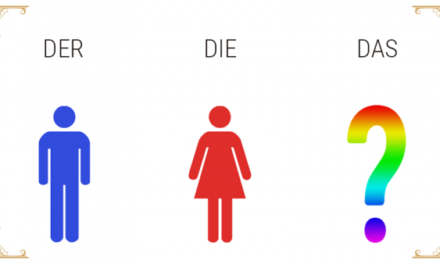The European Commission is hammering away at the member states to patch up the holes in the EU budget. What is behind it and what changes can be expected in European politics after next spring's EP elections? Tamás Deutsch, head of the Fidesz European Parliament delegation, gave an interview at the Gombaszög Summer Camp.
According to all indications, the biggest debates in the coming weeks and months in the European Union will take place around the budget. How did we get to the point where the European Commission is hammering the member states to patch up the holes in the EU budget?
Given that we are at a summer camp, it would definitely spoil the mood if I were to go into a longer than average discussion about how the European Union budget is composed. (Laughs...) It is definitely necessary to note that, in contrast to national budgets for one year, the European Union has a long-term, seven-year so-called adopts a framework budget.
The current long-term budget cycle began on January 1, 2021 and will run until December 31, 2027. The total amount of this budget is worth savoring a little: 1,083 billion euros. Quoting Jenő Rejtő here, I can only imagine the amount of money I have already seen together...
I'm just pointing out that several people in the audience hissed...
Continuing the economics lesson a little more, one-third of the EU budget's revenues come from the fact that, for example, the majority of the VAT paid in the member states, or the customs collected at the external borders, go to the EU budget in their entirety. But two-thirds of that unaccounted 1,083 billion euros come from member states' contributions. The member states pay into the common fund in proportion to their economic strength, we Hungarians account for about two percent of all contributions. The framework budget agreement also states that halfway through the seven-year cycle, the state of the budget must be reviewed - this is also happening now.
With that, I finished the short lesson, we can talk about politics. Even before the adoption of the budget, heated debates usually take place, and among many other issues, the member states benefiting from agricultural subsidies or catch-up funds and the net contributors, the so-called miserly countries that do not or only barely receive from these sources. By the way, the EU budget must be adopted with the full agreement of the 27 member states in the European Council, and the agreement of the European Parliament as a co-legislator is also required - this was finally achieved only last time.
I would also quietly note that when the budget was adopted, there was a consensus among all 27 member states that there would be no additional payments during the mid-term review of the budget...
This brings us to the current debates. How can it be explained that the European Commission still expects the member states to pay new significant sums?
Contrary to the statement of Commission President Ursula von der Leyen, that there is no shortage of any kind in the EU budget, only the usual mid-term review is taking place, based on which additional payments are needed, the truth is that the Brussels bureaucracy has run out of money. In June of this year, the European Commission proposed additional payments of 69.5 billion euros.
What are they asking for the next ten billion?
I would like to start by saying that the European Commission has so far come up with the idea of providing several billion euros in additional support to Ukraine every week - now they want to give an additional 50 billion euros - while they cannot account for the exact amount of money they have already provided to Ukraine.
With due respect, acknowledging the tens of thousands of human tragedies caused by the war, it is still not appropriate that we do not have a clear overview of the EU aid granted to Ukraine since February 2022, the Russian aggression.
We do not know how much of this is non-refundable support, EU borrowing intended for Ukraine, or taking over the interest on loans taken by Ukraine. Just as no one checked what the Ukrainians were spending the EU funds on. Without making accusations, but knowing Ukraine's corruption indicators, this is not very reassuring. Just as it is no less blood-curdling that, according to the EC's calculations, the interest on the loan, which accounts for the majority of the 750 billion euros intended for the recapitalization of the European Recovery Fund, would have originally reached 14.9 billion euros by the end of 2027. While not even half of the available credit limit has been used up, the amount intended for interest will run out already this December. In addition, it was said that no major payments will be needed during the mid-term review of the budget, in comparison, they want to spend an additional 19 billion euros, i.e. around 34 billion euros in total, on interest payments in addition to the 15 billion euros. And if these extra payments don't happen, the EU will simply go bankrupt.
In other words, Brussels would make Hungary and Poland pay the rising interest rates, while they did not even receive a penny from the recovery fund?
Not only do they want us, the Hungarians and the Poles, to pay the rising interest rates in this way, but also the three other member states, which, although they are not sitting on the political dock, have also not received a single euro cent from the borrowing. To give you an idea of the magnitude: the EU spends 22 billion euros over 7 years on the most valuable Erasmus plus program - and now, in comparison, they want to spend 34 billion euros on interest payments.
I would like to note that if in the corporate world the management accounts for interest expenses to such an extent, then the owners will politely, or less politely, thank you for their work. Compared to this, the European Commission does not even clear its throat to explain that such a situation could have arisen in the blunder.
And we haven't even talked about the fact that, citing runaway inflation - let's put aside for a moment how much of a part the failed Brussels sanctions policy plays in this - they are asking for an additional eight billion euros to raise the salaries of Brussels bureaucrats. In other words, after they badly axed borrowing and they are working so slowly that only 2.5 percent of the catch-up subsidies were paid out to the member states halfway through the seven-year budget, they are even asking for a salary increase... Complete nonsense. The European Commission usually has few proposals that are rejected by all 27 member states in unison, but this is one of them.
Will the incumbent European Commission still have the power to force budget amendments down the throats of the member states?
It is not at all mandatory for them to amend the budget... Of course, they must provide at least the necessary funds for interest costs, so now the well-known emotional and political blackmail from the European Commission will follow.
It is easy to predict, the reference to the freedom struggle of the Ukrainians will be the emotional part of the blackmail, and the political part is that there is no other choice, the interest expenses must be increased, since the loans cannot be allowed to fail.
At the same time, the person who can reach an agreement with the Germans, the Swedes, the Finns, the Austrians and the Dutch at the same time has not yet been born. Today, I think this is impossible, a completely new approach will be needed: I see the possibility of meaningful professional and political agreement only if the European Commission finally dismantles the bureaucratic obstacle mass of pallets, which prevents the member states from immediate access to the money that is rightfully theirs.
The full interview can be read HERE!
Featured Image: Facebook













